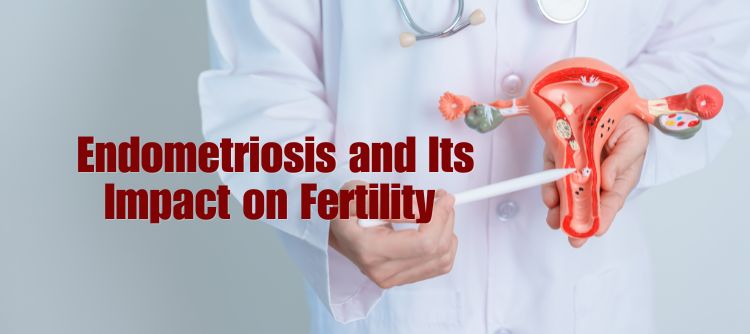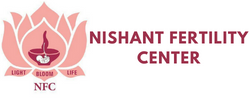Endometriosis and Its Impact on Fertility

Endometriosis, a complex and often painful condition, extends beyond its immediate physical effects to significantly influence fertility. Understanding the intricate relationship between endometriosis and fertility is crucial for individuals seeking to build a family. In this exploration, we delve into the depths of endometriosis, examining its definition, manifestations, and the profound impact it exerts on the journey toward conception.
What is Endometriosis
Endometriosis is a chronic medical condition that occurs when tissue similar to the lining of the uterus, known as endometrium, grows outside the uterus. The ovaries, fallopian tubes, and other pelvic organs contain this tissue. During a woman’s menstrual cycle, this tissue behaves similarly to the endometrium inside the uterus, thickening, breaking down, and bleeding. However, unlike the uterine lining, the blood and tissue shed from endometriosis have no way to exit the body. This can lead to the formation of painful adhesions, cysts, and inflammation in the pelvic region.
Understanding endometriosis is crucial, especially for women seeking fertility treatment in Jaipur, Rajasthan. The condition can significantly impact reproductive health, making it important to recognize the signs and seek guidance from infertility doctors and IVF centers.
Signs of Endometriosis
Recognizing the signs of endometriosis is essential for timely intervention and fertility preservation. While symptoms can vary, common signs include:
Pelvic Pain: Persistent pelvic pain, often associated with menstruation, is a hallmark of endometriosis. The pain can range from mild discomfort to severe cramping, impacting daily activities.
Painful Menstruation: Women with endometriosis often experience more intense menstrual cramps than usual. This can contribute to increased discomfort during periods.
Painful Intercourse: Endometriosis can cause pain or discomfort during sexual intercourse, leading to challenges in intimate relationships.
Irregular Menstrual Bleeding: Irregularities in menstrual bleeding, such as heavy or prolonged periods, can be indicative of endometriosis.
Infertility: For many women, endometriosis manifests as infertility. The presence of endometriosis can interfere with the normal functioning of the reproductive organs, making conception challenging.
Understanding these signs is crucial for individuals seeking IVF treatment in Jaipur, Rajasthan. Consulting with an infertility doctor and exploring options at an IVF center can provide a pathway for managing endometriosis-related fertility concerns.
How Does Endometriosis Impact Fertility?
Endometriosis, a condition where tissue similar to the uterine lining grows outside the uterus, can significantly impact fertility. The intricate mechanisms involved in conception become disrupted due to the presence of endometriosis, influencing various aspects of the reproductive process.
Distorted Pelvic Anatomy: One of the primary ways endometriosis affects fertility is by distorting pelvic anatomy. As the ectopic tissue proliferates, it can create adhesions and scar tissue, altering the normal structure of reproductive organs. This distortion hampers the free movement of eggs from the ovaries to the fallopian tubes, making it challenging for sperm to reach and fertilize the egg.
Impaired Ovulation: Endometriosis can interfere with ovulation, the release of mature eggs from the ovaries. The inflammatory environment created by endometriosis may disrupt the hormonal balance necessary for regular ovulation. Irregular or absent ovulation can significantly reduce the chances of successful conception.
Compromised Egg Quality: The presence of endometriosis may also impact egg quality. Inflammation and oxidative stress associated with the condition can affect the maturation and quality of eggs, reducing their ability to be fertilized and develop into a healthy embryo.
Altered Uterine Environment: Endometriosis can create a hostile uterine environment, making it less conducive for embryo implantation. The inflammatory response triggered by the ectopic tissue may interfere with the implantation process, leading to difficulties in achieving a successful pregnancy.
What Treatments for Endometrial Infertility Exist?
Dealing with endometriosis-related infertility requires a comprehensive approach, and several treatments exist to address the unique challenges posed by this condition.
Hormonal Therapies: Hormonal treatments are commonly prescribed to manage the symptoms of endometriosis and improve fertility. These may include oral contraceptives, gonadotropin-releasing hormone (GnRH) agonists, or progestins. By regulating hormonal fluctuations, these therapies aim to alleviate pain, reduce inflammation, and create a more conducive environment for conception.
Surgical Interventions: In cases where endometriosis has caused significant adhesions or cysts, surgical interventions may be recommended. Laparoscopic surgery is a minimally invasive approach that allows for the removal of endometrial tissue, cysts, and adhesions. This can enhance the structural integrity of reproductive organs and improve the chances of natural conception.
Assisted Reproductive Techniques (ART): For individuals facing persistent fertility challenges due to endometriosis, assisted reproductive techniques (ART) offer viable solutions. In vitro fertilization (IVF) is a commonly employed ART for endometriosis-related infertility. IVF involves the retrieval of eggs, fertilization with sperm in a laboratory setting, and the transfer of embryos into the uterus. This approach bypasses the obstacles posed by endometriosis, increasing the likelihood of successful conception.
What Should a Person with Endometriosis Do If They're Struggling to Get Pregnant?
Struggling with infertility while dealing with endometriosis can be emotionally challenging, but there are proactive steps individuals can take to enhance their fertility journey.
Consultation with an Infertility Doctor in Jaipur, Rajasthan: Seeking guidance from an experienced infertility doctor in Jaipur, Rajasthan is the first crucial step. These specialists can conduct thorough assessments, including evaluating the extent of endometriosis, identifying any associated fertility issues, and developing personalized treatment plans tailored to the individual’s needs.
Exploring IVF Treatment in Jaipur, Rajasthan: IVF treatment is a promising option for individuals with endometriosis-related. IVF centers in Jaipur, Rajasthan, offer advanced reproductive technologies to optimize the chances of conception. The collaborative efforts of fertility specialists and IVF professionals aim to overcome the obstacles posed by endometriosis and fulfill the dream of parenthood.
Conclusion
The impact of endometriosis on fertility underscores the importance of early detection, specialized care, and a collaborative approach between individuals and their healthcare providers. Through a blend of medical expertise, cutting-edge treatments, and a resilient spirit, the dream of parenthood can be pursued and realized, even in the presence of endometriosis. The journey may be intricate, but with the right support, each step forward becomes a testament to strength, hope, and the possibility of a fulfilling family future.
